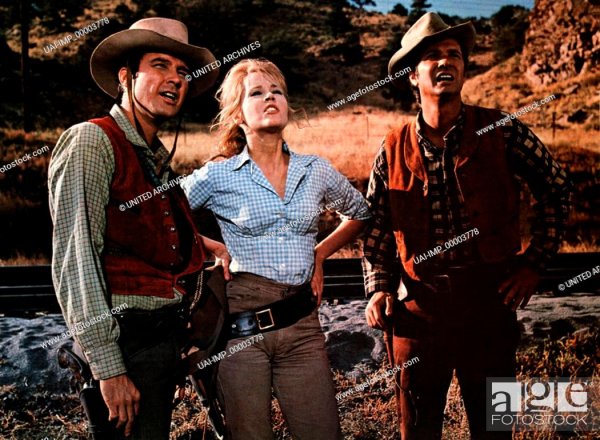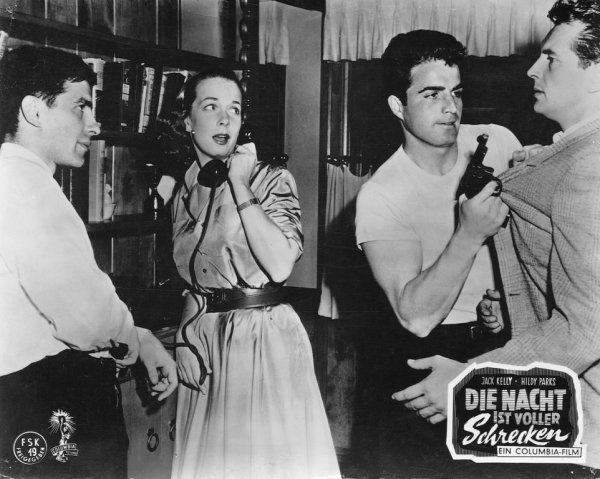MisterCairo
I'll Lock Up
- Messages
- 7,005
- Location
- Gads Hill, Ontario
Speaking of its darker vibe, I recall reading on the inter web a religious guy discussing the many sexual references in what was supposed to be a family film!
George, cab driver and cop meeting Violet on the street ("This old thing? This is what I throw on when I don't care how I look") one of the most egregious examples!
George, cab driver and cop meeting Violet on the street ("This old thing? This is what I throw on when I don't care how I look") one of the most egregious examples!
View attachment 385050
It's a Wonderful Life from 1946 with James Stewart, Donna Reed, Lionel Barrymore and Henry Travers
It's a Wonderful Life's rights lapsed into the public domain from 1974 until 1993, so for many years at Christmastime, it was played endlessly on TV. It was shown so often, it turned into a joke as viewers burned out on it.
No longer in the public domain and having avoided it for a few decades, one is able to look at It's a Wonderful Life anew, and it holds up pretty darn well. Its economics are all but nonsense - standard Hollywood and director Frank Capra cardboard anti-business hokum - but its spirituality is inspiring. Its exposition of one man's life is surprisingly thoughtful and poignant.
James Stewart as George Bailey grows up in the small town of Bedford Falls dreaming of travel, adventure and big cities. His father runs the beloved but perpetually struggling Building and Loan - the town's small bank alternative to its only other bank owned by the greedy and mean Mr. Potter, played with Scrooge-like exaggeration by Lionel Barrymore.
Everytime George is close to getting out of Bedford Falls, something - his father's stroke, a bank run, his injured ear - prevents his escape. He turns down business opportunities out of town to keep his necessary-to-the-community bank going. Soon enough, he marries girl-next-door Donna Reed and settles down to keeping the bank alive while he and Reed have a bunch of kids.
George is a good guy who helps his neighbors and customers with their problems while, ironically, providing the funds for others, like his brother, to leave town. Despite a few bank crises, with the community's support, he keeps it all together until one Christmas Eve when his uncle accidentally loses the bank's cash reserves just as a bank examiner arrives (I know, but it's a movie).
Stewart is now facing the bank being closed and, even, being arrested because of the missing funds. At home that evening, his old house is falling apart, his gaggle of kids are being annoyingly rambunctious and one is not feeling well. After a small meltdown there, he walks out only to get into a bar fight and car accident later.
With his world crumbling around him, George, holding a personal pity party standing on a bridge, contemplates suicide. He believes everyone would be better off without him as he is "worth" more dead than alive because of his life insurance policy. Enter the wonderful Henry Travers as George's bumbling guardian angel sent from above to save George.
He grants George his wish to have never been born and then, riffing like all heck on A Christmas Carol, shows George what charming Bedford Falls would be like if he, George, truly hadn't been born.
The town having been, effectively, taken over by the greedy Mr. Potter has become a seedy honky tonk. Several of the people whom George had saved with a kind last-minute loan or gift or other help are now drunkards, embittered or impoverished. His wife is a spinster librarian (still looking Donna Reed adorable, though) and his kids have never been born.
Seeing all this, George begs his guardian angel to have his life restored. Now back, George is happy to see the town he had grown to hate and hugs his wife and children with a renewed love.
Being a Frank Capra movie, and this still being Christmas Eve, the townsfolk come to the Bailey's house with whatever money they can dig up to save George and the bank. It's a Capraesque moment of treacly happiness that works because, heck, George is a good guy and you share in his redemption.
It's a Wonderful Life is outstanding movie propaganda with a darker vibe than its reputation would have you believe. Even though the characters are cartoons and the business and financial constructs are ludicrous, the Christmas spirit endnote is so infectious, you don't care.






